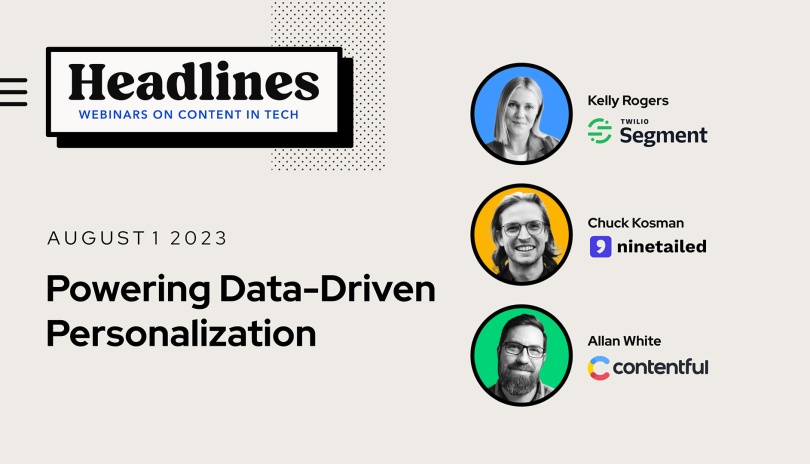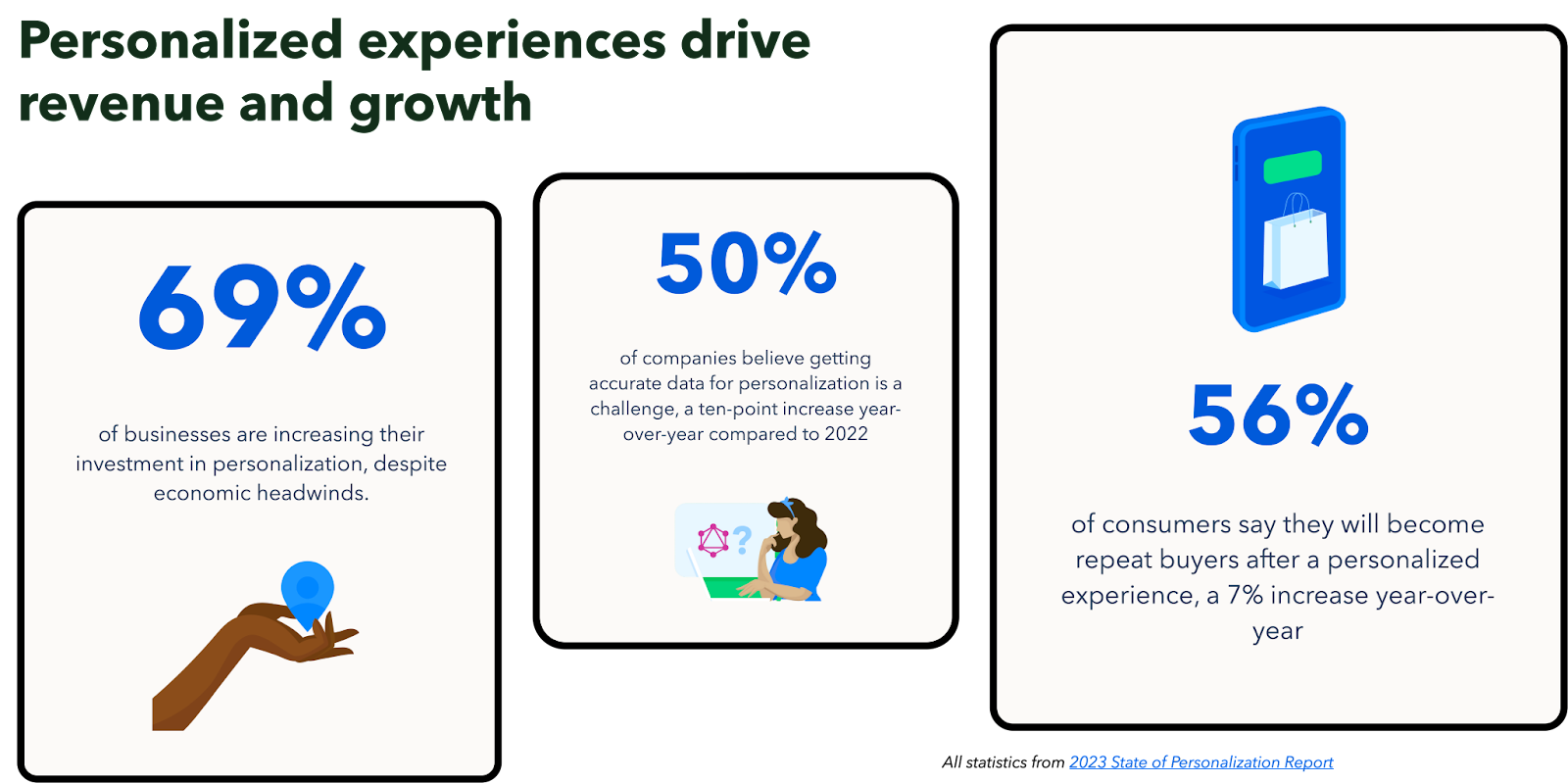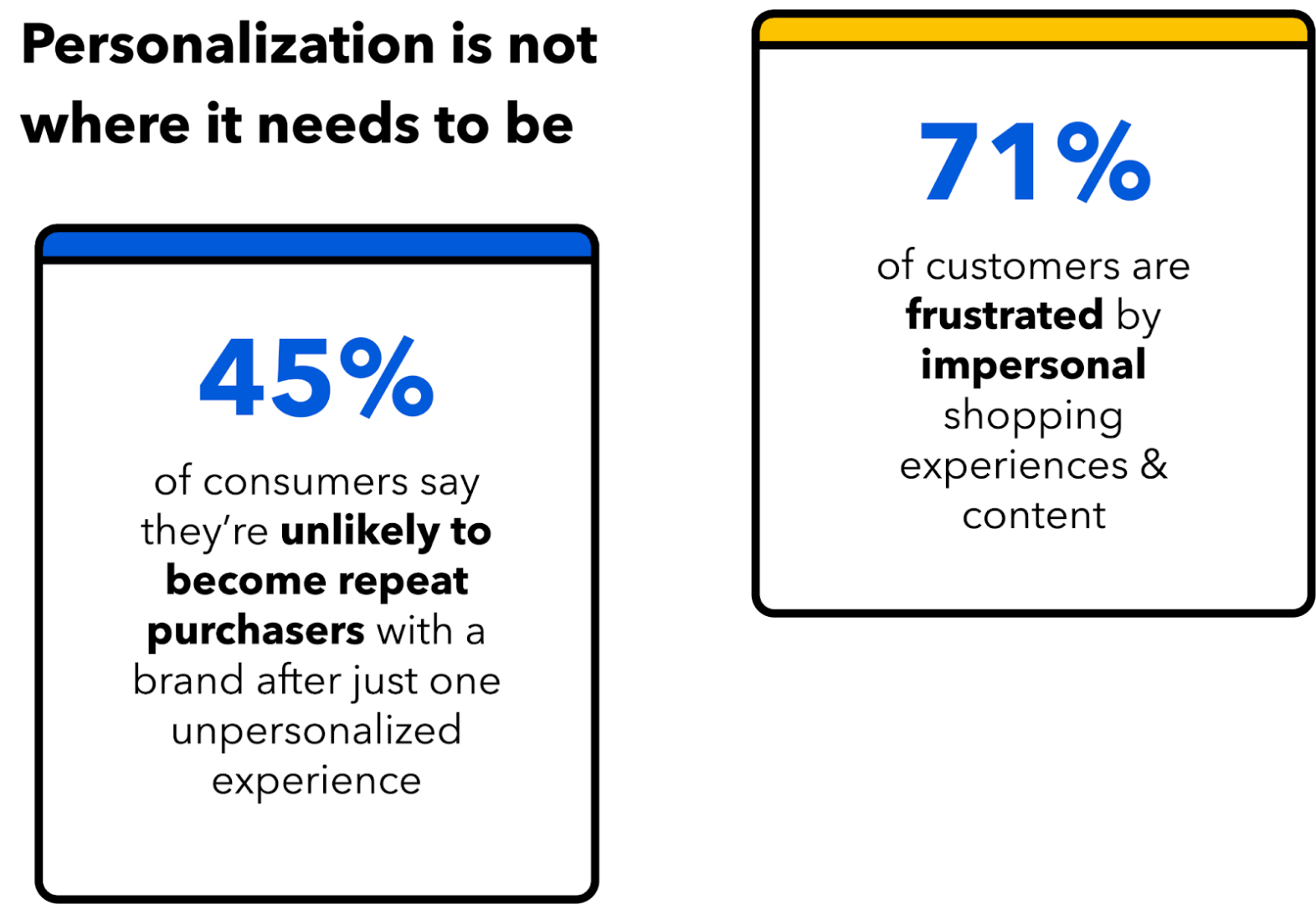The Power of Personalization in Today’s Market

The current state of personalization in the market: Trends, challenges, and opportunities
Our discussion began with an overview of the current state of personalization in the market, drawing from Twilio Segment’s annual State of Personalization Report.
This report offers a detailed look into the latest trends in personalization, consumer loyalty, privacy, and more. It uses comprehensive survey analysis from business leaders and consumers to uncover the strategies businesses employ to forge deeper connections with their customers.
Despite the economic uncertainty that persists for many businesses, the report revealed that approximately 69% of surveyed businesses are increasing their investment in personalization. This trend suggests a recognition of the value of personalization in cultivating engaging and loyal customer relationships, even in challenging times.
Correspondingly, from the consumer’s perspective, the increase in personalization investment is justified. Around 56% of customers say they’re more likely to become repeat buyers after a personalized experience — a figure that’s risen by about 7% year-on-year from this report.

The challenge of fragmented data
However, the picture isn’t entirely rosy. While businesses understand the importance of personalization and consumers respond positively to personalized experiences, many companies struggle with data management. The challenge lies in consolidating data from various teams into one cohesive place to fuel personalized experiences.
Have you ever experienced seeing an advertisement that was completely unrelated to you? You might wonder how you ended up in that targeting pool. Or perhaps you’ve visited a website to find a product you’ve purchased before, but instead of having it surface immediately, you had to do some digging. This frustrating and impersonal experience is a sentiment shared by 71% of consumers.
Both companies and customers desire personalized experiences, but delivering it is challenging. Approximately 45% of consumers say they’re unlikely to become repeat purchasers with a brand after just one generic, unpersonalized experience. This signals a clear need for businesses to improve their personalization efforts.

…
An excellent example of the benefits of combining our platforms comes from the major ecommerce brand, Ruggable. They use Shopify for their ecommerce platform and Contentful for their content management system. Instead of providing a generic experience for every visitor, Ruggable implemented a more personalized approach, which resulted in a 25% increase in their conversion rate and a nearly seven-fold increase in click-through rates on their hero images.
…
Take a tour!
See Contentful in action with a personalized walkthrough.

